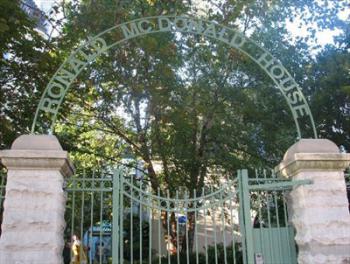Serendip is an independent site partnering with faculty at multiple colleges and universities around the world. Happy exploring!
Ronald McDonald House


Throughout high school and my freshman and sophomore year at Bryn Mawr I volunteered at the local Ronald McDonald House, an organization that provides a place to stay for families with children who need to travel for their healthcare. I loved interacting with the families I got to know from around the world, and always looked forward to spending time with them. But I also began to think critically about the health inequities I saw amongst the people I met, including lack of access to insurance, limited health resources in rural areas, and “diseases of poverty,” such as lead poisoning. Without knowing it, these observations were my first foray into public health research, and made me hungry for more. I have since jumped into the field from both research and service angles, and understand many of these inequalities from a more nuanced perspective, but this initial awareness still dictates how I think about health and healthcare.
Before making these connections, I probably would have assumed that a public health problem like lead poisoning resulted from a lack of health education, without delving into deeper underlying causes. When black children are three times as likely to experience lead poisoning as white children – across all income levels – it is clear that racism can play a pernicious role in how this poisoning occurs. I now know that childhood lead poisoning policies, which began in the 1970s, significantly favor white children over black children, and often rarely even enter black communities where lead poisoning is prevalent. As Max Weibtraub explains, “Examining how institutional racism hypersegregates Black communities expands the range of potential solutions to childhood lead…Environmental justice demands that we do no less.” Lead poisoning is about education, but it is also about racist and prejudicial policy. This realization has followed me into my work in the HIV field and studying healthcare policy.


Comments
Post new comment